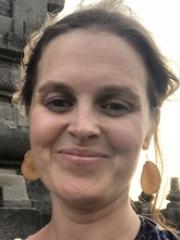Professor Karen McNamara

Researcher biography
Karen is a Professor of Development Geography in the School of the Environment and an ARC Industry Laureate Fellow (2026–2031). Her work examines how people experience and respond to the intersecting challenges of climate change, disaster risk, poverty, and displacement. Over the past two decades, she has led long-term, collaborative research partnerships across the Asia-Pacific, working with governments, NGOs, and local communities to understand lived experiences of vulnerability, resilience, and adaptation.
Karen's research has included supporting farming communities in Aceh rebuilding after the 2004 Indian Ocean tsunami; examining the experiences of newly settled migrants in Dhaka displaced by erosion and flooding; partnering with Torres Strait Elders to record traditional environmental knowledge; and documenting everyday climate impacts and adaptation stories across rural Pacific Island communities.
She has led a series of major research projects, including an ARC Future Fellowship, and has served in advisory roles for national governments and international organisations. She currently sits on the Expert Group on Non‑Economic Losses under the Warsaw International Mechanism for Loss and Damage (UNFCCC), contributing her expertise on climate-related impacts and social equity.
Karen grew up in Quirindi on Kamilaroi Country in NSW. Her rural upbringing fostered a deep commitment to research that is grounded, community-focused, and centred on supporting more just and resilient futures.


